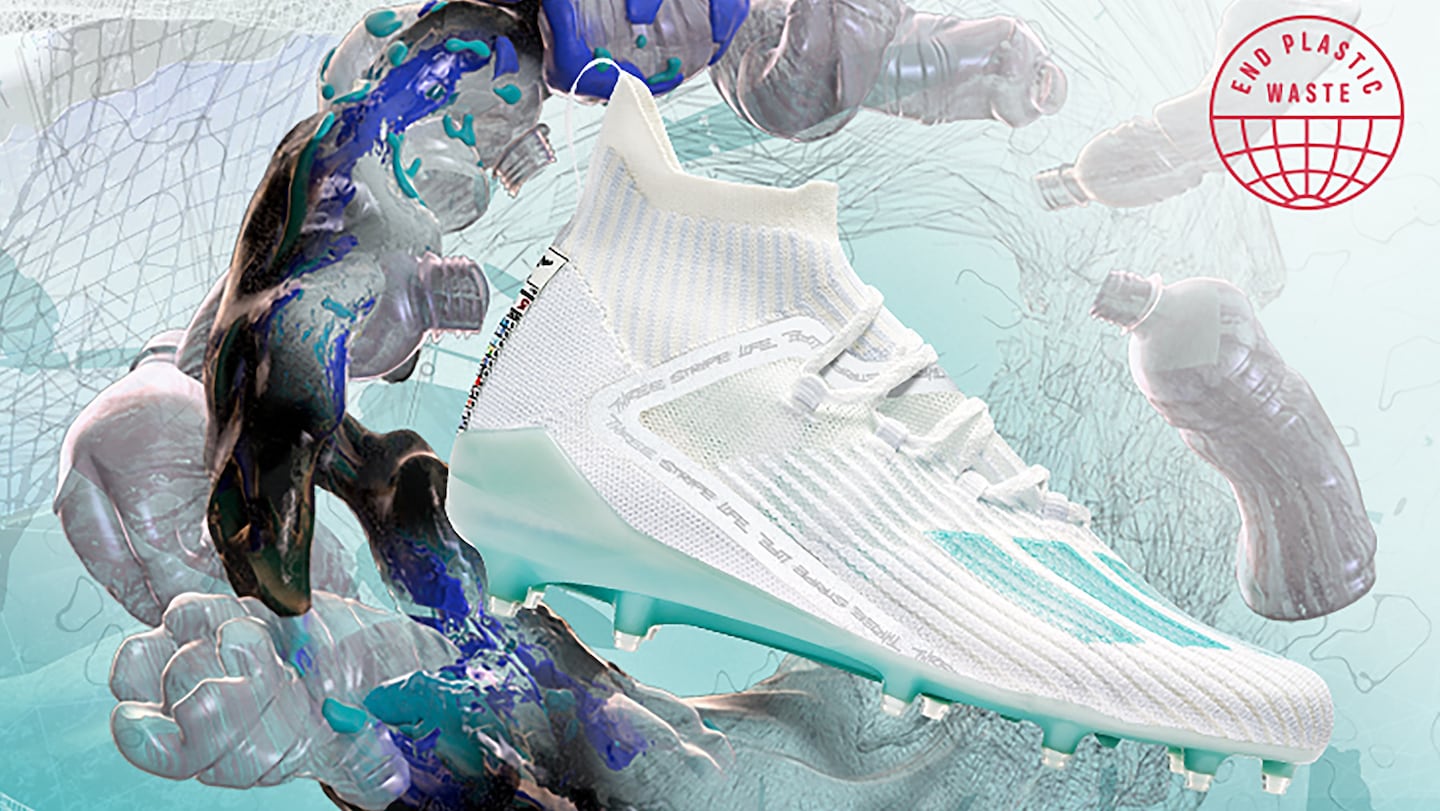
Agenda-setting intelligence, analysis and advice for the global fashion community.

Agenda-setting intelligence, analysis and advice for the global fashion community.

Last year, 91 percent of the polyester used in Adidas’ sportswear was recycled. By 2024, the outerwear brand is aiming to have eliminated virgin polyester altogether. Climate-focused outerwear brand Patagonia and fast fashion-giant Inditex have similar goals for 2025.
The commitments – and progress towards them – seem like major wins for the kind of sweeping overhaul needed to curb fashion’s negative impact on the environment. Polyester is fashion’s favourite material accounting for roughly 54 percent of the market, according to a new report by non-profit Textile Exchange.
Essentially a form of plastic, it’s also responsible for millions of tonnes of cheap throwaway products that end up in landfill every year. Moving to recycled alternatives is a good step that reduces fashion’s reliance on virgin fossil fuels, but it doesn’t deal with the waste issue.
The problem is that almost all of the recycled polyester available on the market today comes from plastic bottles, not old clothes. And once made into textiles that plastic is much harder to keep in circulation than if it had remained a bottle that could be recycled again and again.
ADVERTISEMENT
“It’s better than creating a new synthetic fossil fuel-based material,” said Textile Exchange chief strategy officer Ashley Gill. But “ultimately, it’s kind of like ending the life of that plastic that’s in the bottle faster than if it stayed in this continuous bottle-to-bottle recycling.” Around 99 percent of the recycled polyester currently on the market comes from plastic bottles, according to Textile Exchange.
That makes the shift currently underway just the start of a much longer (and harder) slog to really tackle the industry’s impact.
Textile-to-textile recycling technologies that are beginning to hit industrial scale should help move the needle further – and offer a neat solution to the ambiguous tension between big brands’ sustainability goals and their growth targets.
Adidas and Inditex are among a host of brands that have invested in such recycling solutions. By the end of the decade, up to 30 percent of Europe’s post-consumer textile waste could be transformed into valuable raw materials, according to a report by consultancy McKinsey & Co published in July. Meanwhile, brands are also experimenting with redesigning products and building out the infrastructure to take back and enable more recycling.
But rapid acceleration across the industry is needed to move these efforts beyond buzzy and marketable pilots. Last year, around 3.4 million tonnes more fossil-based fibres were produced than in 2020, an increase in volume out of whack with industry commitments to tackle climate change and lower emissions, Textile Exchange’s new report found.
Polyester volumes rose to 61 million tonnes, up 7 percent year on year. Low prices meant demand for recycled variations (almost all made from plastic bottles) has stagnated at around 15 percent and is only forecast to increase to 17 percent by 2025.
“This is following the trajectory of business as usual,” said Gill. Where companies are in terms of material substitution “is not aggressive enough yet.”
Rachel Deeley contributed to this article.
For more BoF sustainability coverage, sign up now for our Weekly Sustainability Briefing by Sarah Kent.
Editor's Note: This article was updated on Oct. 10, 2022. A previous version misstated Textile Exchange chief strategy officer Ashley Gill's title.
As the EU seeks to crack down on a growing glut of clothing waste, the rise of low-value ultra-fast-fashion, along with increased competition and geopolitical disruption, are putting pressure on the economics of collecting, sorting and recycling used textiles.
After a pandemic contraction — and with a new CEO on board — the godmother of mindful consumption is gearing up to grow (mindfully).
Cheap and versatile polyester has underpinned both the fashion industry’s growth and its worsening environmental footprint. Efforts to switch to recycled fibre are stalled, new data show.
This week, New York hosted the “unofficial climate summit of the year.” But the effort to move the needle on climate action feels as gridlocked as the traffic in midtown Manhattan.